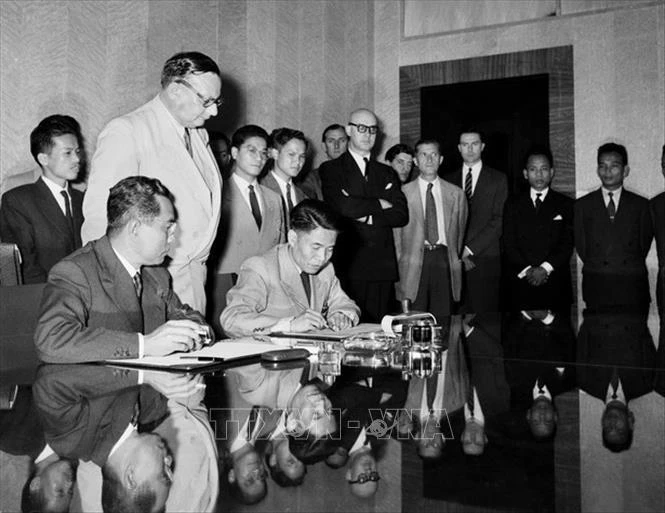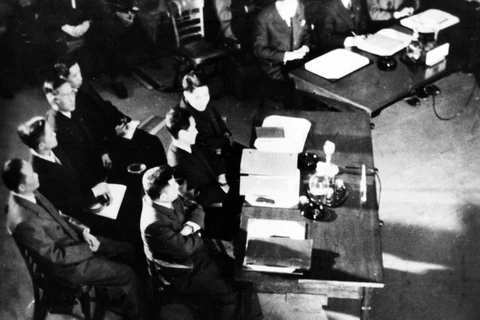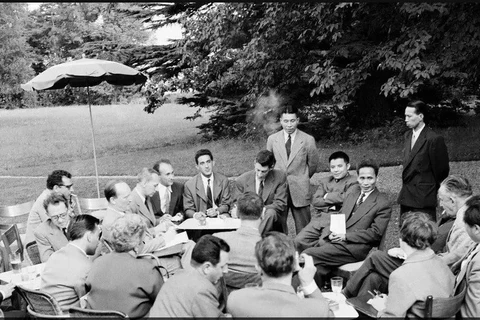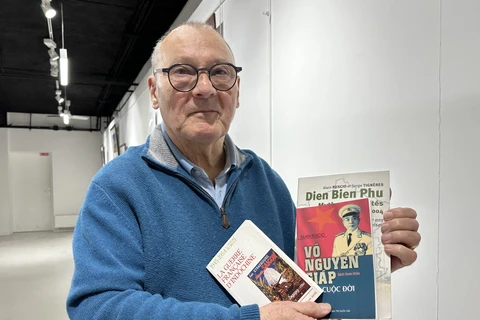
Geneva (VNA) – The Geneva Agreement on the Cessation of Hostilities in Vietnam was a great source of inspiration and support for the struggles for national liberation around the world, said Ambassador Mai Phan Dung.
The Permanent Representative of Vietnam to the United Nations, the World Trade Organisation (WTO), and other international organisations in Geneva made the comment during an interview granted to the Vietnam News Agency on the occasion of the 70th anniversary of the agreement (July 21, 1954 - 2024).
He affirmed that the agreement was an important milestone in the country’s diplomatic history and was the essence of the Vietnamese revolution’s glorious struggle. Together with the Dien Bien Phu Victory earlier the same year, the signing of the Geneva Agreement successfully wrapped up the resistance war against the French colonialists and put an end to the rule of the old colonialism in Vietnam.
With this significance, the deal also became a great source of inspiration and support for the struggles for national liberation across the five continents, for independence, freedom, peace, democracy, progress, and social equality around the globe, Dung went on.
Talking about the agreement’s role in the resistance wars against the French colonialists and US imperialists, the ambassador said the deal heralded a new strategic period of Vietnam’s revolution which was concurrently building socialism in the North and conducting the people’s national democratic revolution in the South to fully achieve the goal of national independence, reunification, and the entire country jointly building socialism.
The negotiation and signing of the 1954 Geneva Agreement created a prerequisite for the Vietnamese people to realise the aspiration for peace, independence, reunification, and prosperous development, he remarked.
Dung attributed Vietnam’s victory at the Geneva conference to the right revolutionary path and the clear-sighted leadership of the Party and President Ho Chi Minh, who turned the goodwill, the love for peace, and the motto of friendship in settling international relations, which are the tradition and characteristic of the Vietnamese people, into the foundation and path to the conference and the agreement.
The 1954 Geneva conference was the first large multilateral event Vietnam had attended to negotiate and sign an international treaty with all big countries, and also to proactively protect and exercise its interests. At the meeting, to end the war in a manner and at a point of time most favourable for the country, with support from the triumphs in the battlefield, particularly the Dien Bien Phu Victory, the Vietnamese diplomacy affirmed the wisdom, mettle, and character of a nation with millennium-long culture and the stature of an independent, sovereign, and peace-loving country, according to the diplomat.
Seventy years have passed, but the negotiation, signing, and enforcement of the Geneva Agreement still left valuable lessons for national construction, defence, and development, Dung went on, calling it a precious handbook on the principles, methods, and art of diplomacy in the Ho Chi Minh era./.






















